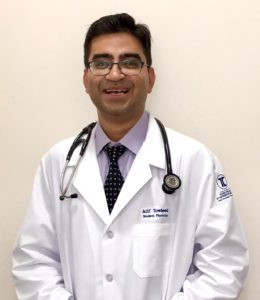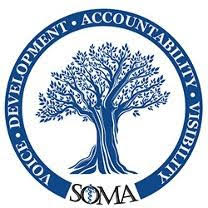Atif Towheed: Research Spotlight Award Recipient
Posted: Feb 1, 2021
 Title: Role of Healthcare Providers in Community Vaccination
Title: Role of Healthcare Providers in Community Vaccination
Atif Towheed1 PhD, Adetokunbo G. Shobaloju1 MD, Lissette McNulty2 MSN, Anna Tran1 MS, Stephanie Zeszutek1 DO.
Affiliations:
- Department of Primary Care, Touro College of Osteopathic Medicine, 60 Prospect Avenue, Middletown, NY 10940
- Orange County Department of Health, 124 Main street, Goshen, NY 10924
Introduction: With the increasing incidence of vaccine-preventable diseases, non-compliance to the recommended vaccination schedule tends to focus mainly on the role of patients or their caregivers. New York State recently experienced one of the largest measles outbreaks since the 1990s. The cause of these outbreaks is often complex and multifactorial. We investigated the role of healthcare providers and their potential impact and influences on vaccination rates.
Hypothesis: We hypothesized that the views, perspectives and practices of health care providers regarding vaccinations have an impact on the vaccination rate in our communities.
Methods: Voluntary online survey, n=571, comprised of medical students, physicians, nurses, nurse practitioners, and other healthcare professionals across the United States.
Results: Survey participants’ ages ranged from 18 to >65 years old and majority were medical students. Majority of healthcare providers worked in suburban areas. 86% felt either very or moderately confident discussing the benefits of vaccinations, although less than half discussed vaccinations with their patients. 30% of the respondents were either unsure or would not recommend a particular vaccination to their patients.~80% of the respondents felt up to date with the local laws/regulations. ~88% were against non-medical exemptions and believed that social media impacts the rate of vaccination. ~31% Physicians/NP/PA and ~ 65% medical trainees believed that they need additional educational resources to facilitate promoting awareness among their patients.
Conclusions: Our results indicate wide diversity regarding views, perspectives, and practices on vaccination. Based on the data, there is a need to introduce additional educational resources for healthcare providers to increase awareness of vaccination benefits among their patients. These resources must keep providers updated on local immunization requirements and best practices. Additionally, providing evidence-based information to the community on the impacts of vaccination will increase awareness of personal and public health.
Acknowledgments: We thank all the survey participants.
Personal Statement:
Healthy community is paramount to ensure proper functioning of any population. Recent surge in vaccine-preventable diseases is alarming. As a primary response, parents/patients get blamed and stigmatized as “anti-vaxxers”. Numerous reasons exist for vaccination rate decline and emergence of vaccine-preventable diseases. Several research groups have focused on the patient aspect of vaccination. However, this issue is multifactorial and quite complex. Hence, we decided to investigate the role of healthcare providers affecting the rate of vaccination among our communities.
I am passionate about research. I believe that research is a tool to solve local as well as global challenges including global-warming and emerging infectious diseases such as Ebola and more recently 2019-nCoV.
Research not only helps unravel the pathogenicity of diseases but also methods to diagnose, predict outcomes and develop treatments/vaccinations. Furthermore, research driven advancements in the field of genomics/proteomics is facilitating evidence-based and personalized-medicine. Conventional treatments are now being supplemented or replaced with modern biologicals or gene-therapy, thereby improving the quality of human life. Further, research enables us to explore and discover beyond the boundaries of what is already known, thus expanding our capabilities and constantly exploring the unknown.
I am fortunate to continue working on and creating new research opportunities while in medical school. Moving into my clinical years and residency to a licensed physician, I plan to continue expanding upon and investigating topics pertinent to and impacting the field of medicine such as public health, osteopathic approaches to health care and solving patient diagnostic mysteries. I will continue working as a team, developing and formulating hypothesis and sharing knowledge through research symposiums and publications in future. My overall goal is to drive interests and promote projects in developing reliable, reproducible outcomes and ultimately, health care solutions.
